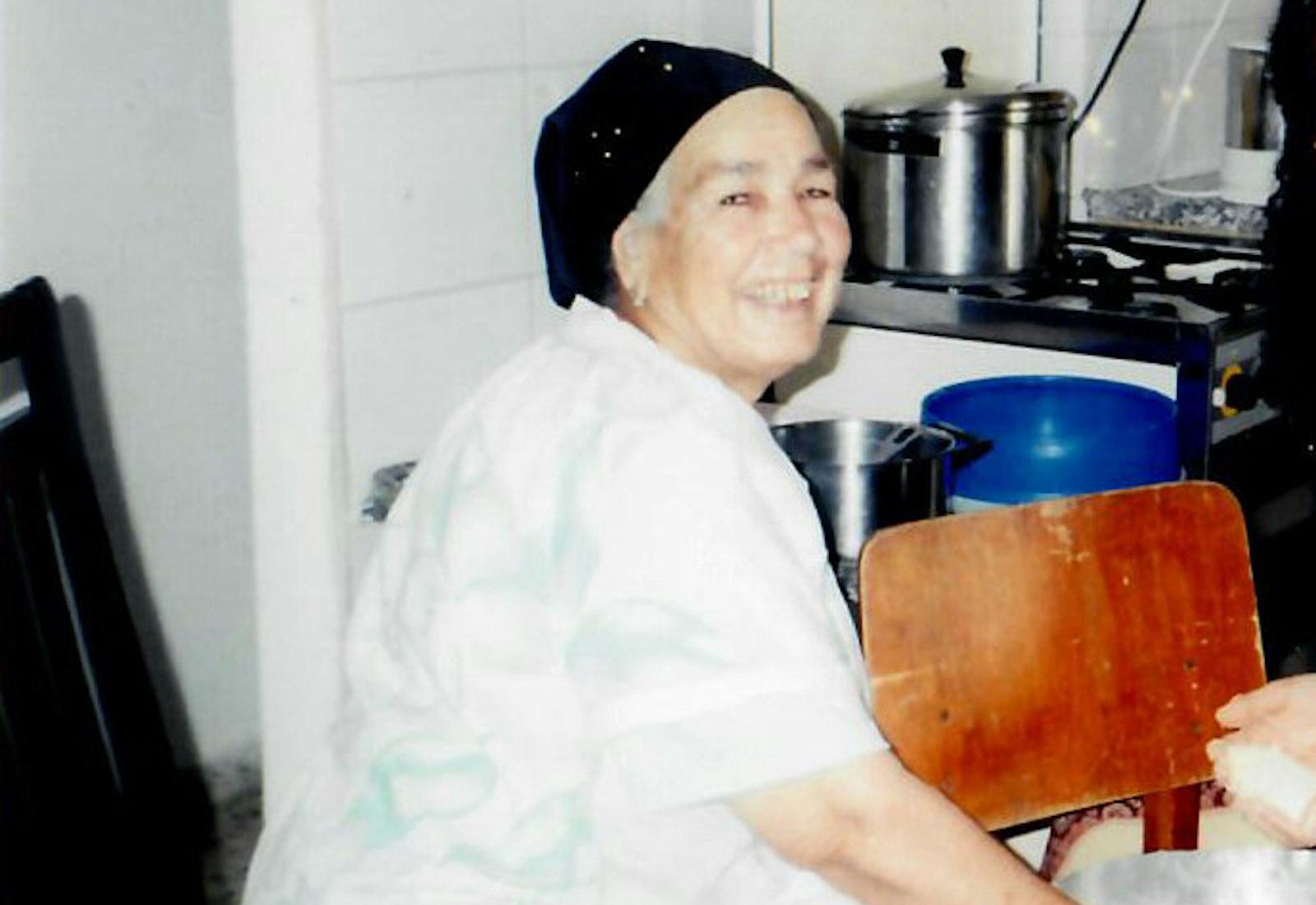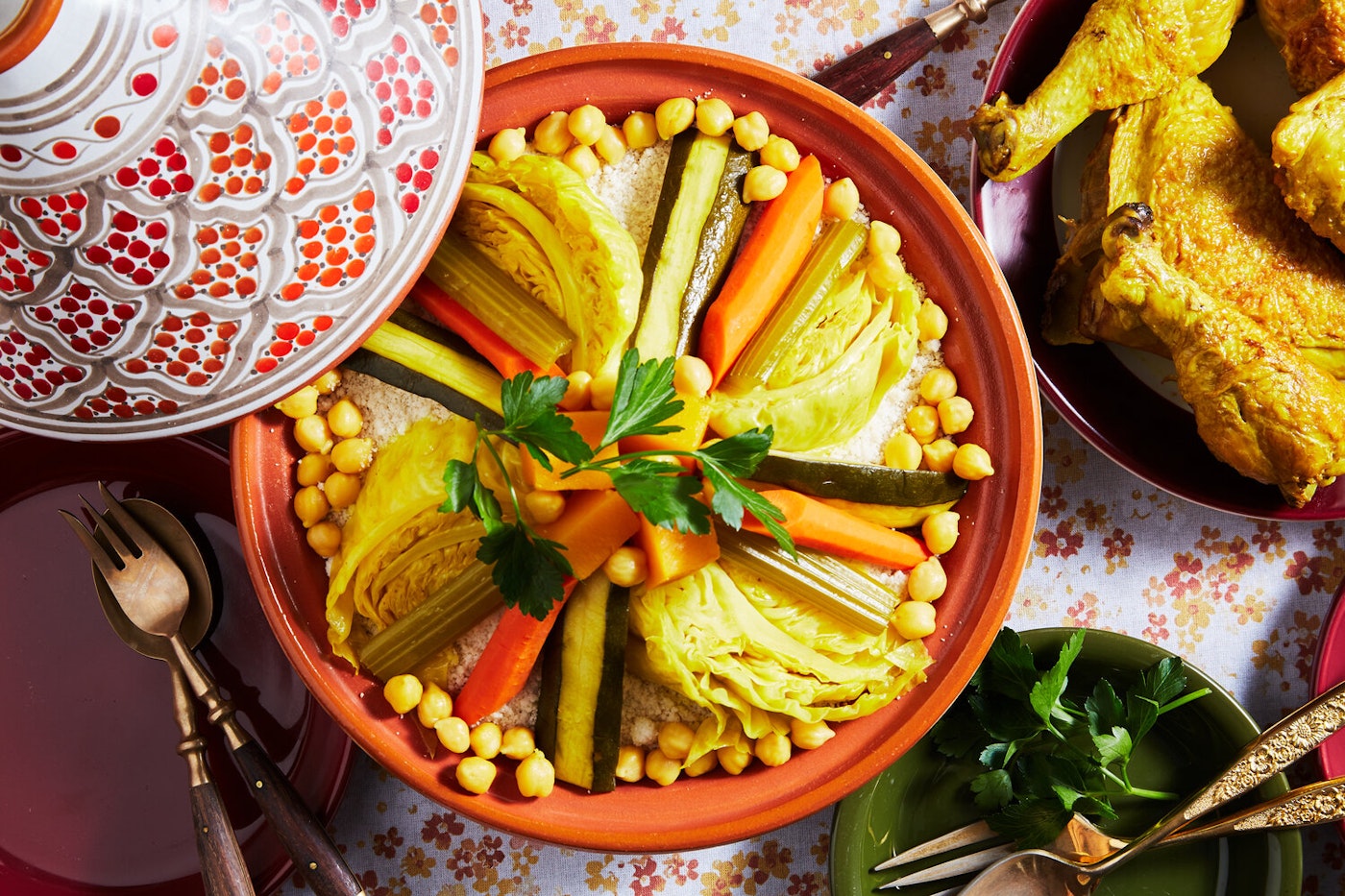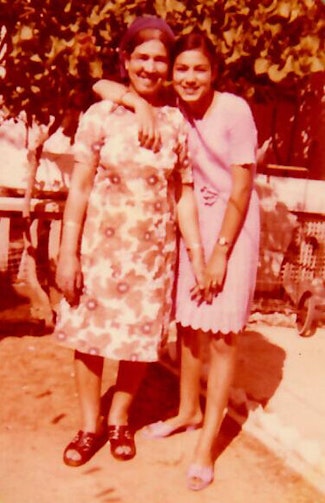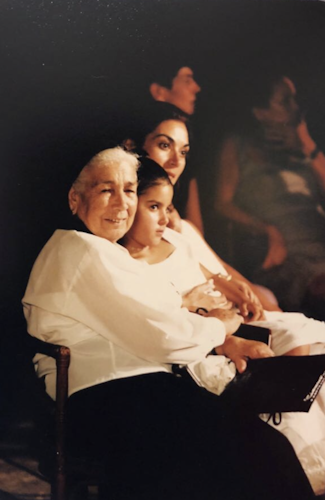Shared by Arielle (Nir) Mamiye and Efrat Navon


When cousins Arielle Mamiye and Efrat Navon’s grandmother Esther Hazan passed away last year, the family gathered in her apartment in the Israeli city of Ashdod to celebrate her and remind one another of her love. “Most importantly we spent the evening talking about each other’s favorite dishes that she would cook for us,” Arielle, who is the culinary manager of the Jewish Food Society, explains.
Efrat recounted her love of birkouks, a special type of couscous cooked in milk, another professed his love for Esther’s bread khobz, a white bread from Morocco, that Esther would enrich with beef and lamb fat. Esther, who was called savta or grandmother in Hebrew in the family, was also known for her matbucha, a cooked salad of tomato and pepper, chicken stuffed with nuts, and mhamar, a casserole made with eggs, potatoes, carrots, and peas.
Many of Esther’s recipes came with her from a village in the Atlas Mountains in Morocco where she was born, to Casablanca where she moved in the 1940s. Here, her father owned a spice shop in the souk and her husband Massoud worked on a vineyard. Excited by the news of Israel’s independence in 1948, Massoud and Esther planned to move to Israel and arrived by boat in the 1950s, settling into a maabara, or absorption center called Charoovit near Jerusalem before finally relocating to Ashdod, where they raised six children.
In their Ashdod apartment, there was always room at their dinner table, particularly on Shabbat. Massoud would bring home guests from the synagogue who didn’t have a place to eat Shabbat dinner. “Esther always made room for these guests and extended the food for them”, Arielle explains.
Of all of Esther’s recipes, the two most beloved for Arielle and Efrat are for couscous that Esther would serve with a chicken and vegetable soup and rifat, or crunchy Moroccan anise cookies rolled out with a pasta machine, that are served with tea.
Arielle says: “I associate this bowl of couscous with my existence in the hospitality world.” It was through her grandmother’s food and her couscous in particular that she came to appreciate the power of expressing love through cooking. “I was able to experience it so much that it really stuck with me,” she adds.
She experienced it every summer when the family would visit. Arielle’s mother Michal moved to the United States to raise a family, but they remain deeply connected to Israel. When they landed at Ben Gurion Airport, the first order of business was to drive to savta’s home for bowls of her perfect couscous. “We’d arrive to her kitchen and there she is sitting in her couscous corner,” as Arielle calls one corner of her kitchen with a floating counter and a wooden chair. This was where Esther would spend hours before the family’s arrival making couscous from scratch. She would always prepare vegetables to accompany the couscous, ensuring each member of the family got their favorites. For Arielle, that was cabbage and carrots.
And when Arielle and her family would return to the U.S., savta would prepare large bags of fresh couscous for them to carry home. “We’d come back with bags and bags of her couscous and we’d just freeze it in our house and my mom would serve it to us throughout the year,” Arielle says.
Growing up on Kibbutz Manara in northern Israel, Efrat had Esther’s couscous throughout the year as well. When she was about 9 years old, Efrat once attempted to ditch school with a friend to take the bus to Ashdod so her friend could try her grandmother’s couscous. While the plan was thwarted by an adult on the kibbutz, it’s a testament to the family’s love of, and pride in, the couscous.
When Esther passed away, Arielle feared her couscous recipe was lost with her. She lamented that to Efrat and was surprised when her cousin told her she had asked their grandmother to teach her how to make the couscous when she got married years before. Efrat had wanted to learn her grandmother’s technique and “channel her form of showing love and care for the family,” Arielle explains.
When Arielle traveled to Israel for her grandmother’s 30th day memorial, it was also to cook the couscous recipe with Efrat. “It was that important to me,” she says. “My savta's legacy is forever stored in her couscous.” The cousins spent a day making the couscous and savta’s rifat, with Efrat’s children helping to roll out the cookies with the pasta machine. Looking back at that day, Arielle says, “It really has come full circle to my grandmother’s great-grandchildren.”


